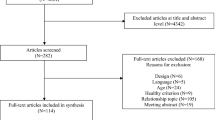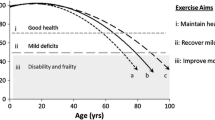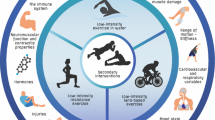Abstract
Introduction
Although summer and sports camps for children with congenital heart disease are organized in many countries and regions, empirical data on the effects of such camps is limited.
Objectives
The aim of the present study was to investigate changes in the perceived health status and habitual physical activities in children attending a special sports camp.
Materials and Methods
In this longitudinal study, 25 children with congenital heart disease who participated in a three-day multi-sports camp were included. The perceived health status was measured using the Child Health Questionnaire-Child Form, CHQ-CF87, completed by the child at the start of the camp (T1), at the end of the camp (T2), and 3 months after the camp concluded (T3). Habitual physical activities were assessed by means of a modified version of the Baecke questionnaire, which was completed by one of the parents at T1 and T3.
Results
During the sports camp, we observed significant improvements in the children’s perception of their physical functioning, role-physical functioning, general health, role-emotional functioning, self-esteem, mental health, and general behavior. For physical functioning, role-emotional functioning, and family activities, high scores persisted three months after the sports camp concluded. The habitual physical activities (sport and leisure time) of the children remained unchanged.
Discussion and Conclusion
In conclusion, we propose that a special sports camp for children with congenital heart disease may improve specific dimensions of subjective health status. Our study confirms a previous report on the benefits of such camps for afflicted children. If these findings can be further corroborated in other settings, participation in sport camps should be advocated as a simple, noninvasive means to promote healthier children.

Similar content being viewed by others
References
Baecke JA, Burema J, Frijters JE (1982) A short questionnaire for the measurement of habitual physical activity in epidemiological studies. Am J Clin Nutr 36(5):936–942
Biggs KS, Heinrich JJ, Jekel JF, Cuono CB (1997) The burn camp experience: variables that influence the enhancement of self-esteem. J Burn Care Rehabil 18(1 Pt 1):93–98
Cohen J (1988) Statistical power analysis for the behavioral sciences. Lawrence Erlbaum, Hillsdale, New Jersey
Landgraf JM, Abetz L, Ware JE (1999) The CHQ user’s manual, 2nd edn. HealthAct, Boston, Massachusetts
Moons P, Barrea C, De Wolf D, Gewillig M, Massin M, Mertens L, Ovaert C, Suys B, Sluysmans T (2006) Changes in perceived health of children with congenital heart disease after attending a special sports camp. Pediatr Cardiol 27(1):67–72
Raat H, Landgraf JM, Bonsel GJ, Gemke RJ, Essink-Bot ML (2002) Reliability and validity of the child health questionnaire–child form (CHQ-CF87) in a Dutch adolescent population. Qual Life Res 11(6):575–581
Rodary C, Kalifa C, Bernard J, Leplège A, Landgraf J (1999) Validation in French of the Child Health Questionnaire (CHQ) in children aged 10–18 years. Med Pediatr Oncol 33:253
Ross LJ (1953) A summer camp for children with heart disease. J Pediatr 43(1):67–73
Acknowledgments
This study was supported by the Belgian National Foundation for Research in Pediatric Cardiology, Halle, Belgium.
Author information
Authors and Affiliations
Corresponding author
Rights and permissions
About this article
Cite this article
Moons, P., Barrea, C., Suys, B. et al. Improved perceived health status persists three months after a special sports camp for children with congenital heart disease. Eur J Pediatr 165, 767–772 (2006). https://doi.org/10.1007/s00431-006-0171-7
Received:
Accepted:
Published:
Issue Date:
DOI: https://doi.org/10.1007/s00431-006-0171-7




